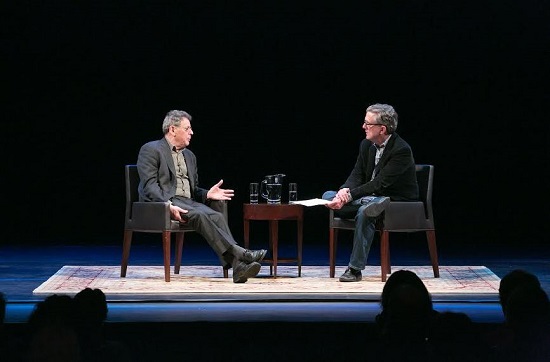Live at BAM: Philip Glass talks up new book

Philip Glass may be a famous composer now, but at one time, he had to make ends meet by driving a taxicab. On one occasion, he told the audience at a talk promoting his new book — “Words Without Music” — at the Brooklyn Academy of Music (BAM) Monday night, an elderly lady looked at the identification tag in his cab and told him he shared a name with a famous composer.
“I didn’t say anything,” he said. “Fate is a strange thing. You play the cards you’re dealt.”
For Glass, his hand included a record store owned by his father, Ben Glass. The elder Glass had dived into the venture after working as an auto mechanic and a radio repairman. With his profession, young Philip Glass had access to a trove of modern classical music — material that, at the time, didn’t tend to sell well in Baltimore, Md. As a result, Glass listed to work by composers including Hindemith, Bartók, Schoenberg and Shostakovich.
